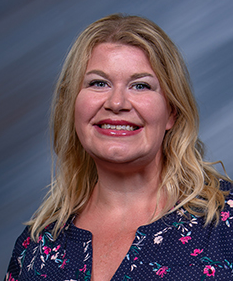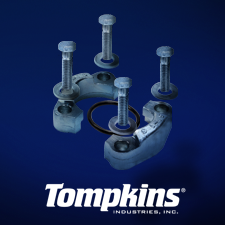The future-forward skillset next-gen leaders need
By Kourtney Gruner |
 |
The world is continuing to change, and at a rapid pace. Business as we know it is doing the same. Each day, technology and digitalization are tripping over the latest release on the way to the next. The timeline for software or concept obsolescence is shrinking. This increasing obsolescence isn’t only changing how businesses operate and engage with customers, it’s drastically transforming how we interact, grow and support one another at work.
So, it makes sense that emerging business leaders should have education and training that equips them for the future we’re facing. Future leaders need a different skillset than was necessary in the early 2000s, or even just five years ago. Accordingly, when they seek continuing education and advanced degrees, curriculum should reflect that and provide them with the new must-have skills, as well as the agility to continually adapt.
What are those new must-have skills for future leaders?
We reached out to graduates and current students of the Master of Industrial Distribution (MID) program at Texas A&M University for their insights.
Kile Irons, MID ’23, inside sales representative at Graphic Solutions Group (GSG)
Phil Evans, MID ’03, vice president, Aftermarket Solutions at Hussmann
Joe Nolan, MID ’19, vice president and general manager of Gibson Engineering Co
These professionals have taken what they learned (and are learning) in the program and applied it in real-world scenarios in their distribution industry roles. They see first-hand, every day, what it takes to lead in a changing business environment – with an eye to the future.
Leadership Skills to Hone for the Future
Our respondents listed the following as top skills mandatory for leaders to be effective today and in the future:
• Strategic thinking: finding key strategic goals and working toward them with a broader view and a focus on the future.
• Effective communication with different personality types.
• Inspirational approach that expresses appreciation and motivates others.
• Organizational dexterity to assess, then develop and deploy a suitable strategy and structure fit for execution.
• Independence and self-reliance to overcome obstacles on your own with minimal help.
• Ability to prioritize and align business goals and strategies with a balanced scorecard.
These suggested skills align with what leaders across industries foresee as necessary to future business. In Forbes’ discussion of Jacob Morgan’s 2020 book, The Future Leader, they outline the skills that will be most critical by 2030. These determinations are based on the book author’s survey of top CEOs. Three critical skills stand out as most essential in distribution and fitting with our respondents’ advice. We’ve excerpted from the article to demonstrate them:
“Coach: Great coaches motivate, inspire, and engage their teams while caring about each member as an individual.
Translator: Translators are master communicators. They listen to understand and do more than hear what people are saying.
Yoda: In the future, leaders need to be emotionally intelligent like Yoda and develop their empathy and self-awareness.” (Forbes)
Our respondents’ advice builds a picture of a leader who has both emotional intelligence and a strategic approach to operations. This leader holds both at equal importance:
They strive to understand employees and make them feel heard and appreciated.
Employee well-being is in the spotlight lately, and it’s not fading away. That’s not only because employees feel they deserve balance and appreciation, but also because happy employees are good for business.
“People are more efficient, harder working and just better at their jobs when they enjoy it,” Nolan said. “People feel good when they feel accomplished. Along with generating and delivering inspirational ideas or goals, consistently acknowledging successful results and pointing out how contributions help achieve corporate goals will drive a team to perform at their best.”
They take a longer, more strategic view and thoughtful steps toward business goals.
Of course, we all hope to be strategic and thoughtful, but daily operations get in the way. In the future, leaders need to embody this hope more fully.
“Businesses have problems to address daily but thinking broader and focusing further out on the horizon than day-to-day blocking and tackling are among the most important things a business leader can do,” Nolan said. “Identifying key strategic goals and engaging in activities that drive meeting those goals, while delegating the daily tactical problems to others, is essential for any leader looking to grow their business aggressively.”
Industry-Relevant Coursework for Effective Leadership
Our respondents felt that their experiences and graduate-level studies supported them as leaders in a changing world, and they shared the lessons and classes that had the greatest impact.
“The two classes that stood out are the Digital Distributor and Distribution Growth Strategies, Models, and Drivers,” Irons said. “These classes helped me learn the technical name of things we do at GSG on a day-to-day basis, while helping me expand my knowledge of the practice Learning the 7S's (Distributor Profitability Framework of Source, Stock, Store, Sell, Ship, Supply Chain Planning and Support Services) and different growth strategies has helped me learn how to help myself in my new role in the sales side of GSG.”
For Evans, it was the knowledge passed down by faculty that helped shaped his thinking for future leadership. “Dr. Dan Jennings was influential in my global thinking. His course expanded my viewpoint of Industrial Distribution.”
“The MID program's collective impact changed how I think and helped me feel more confident and prepared as a relatively young leader in our industry,” Nolan reflected. “It wasn't any particular course, but certain classes, such as Distribution Profitability Analysis, Science of Distribution, Industrial Distribution and Digital Distributor, broadened my knowledge and perspective.”
Advice for Current and Future Industry Leaders
As you head off to reshape and refine your leadership skills, Irons advises, “Never stop learning. The second you get complacent or let yourself stop learning, you will fall behind and not be able to adjust to the new industry.”
Irons credits the MID program and coursework with changing his perspective and approach. “My thinking has changed in that I look at more than one aspect of growth, instead of only looking at how it will impact myself or a coworker,” he said. “There are more people who need to be involved and are affected by the changes than just myself. The changes I’ve made so far have helped me pursue special projects to help the company grow and have helped me grow within the company.”
Nolan recommends that industry leaders focus on data analytics, human capital and digital technologies tied to sales and marketing. And he too points to getting a specialized graduate degree as an invaluable resource, saying, “The MID program exposes you to the best practices in all these areas, which will be critical to providing the most value to a distribution business.”
As you are evaluating your current business plans, know that what you are doing in one quarter may not work for the next. Business is constantly changing and we as an industry need to be prepared with skills that were not weighted as heavily in the past. As Evans points out, learning and collaborating with experts in distribution is “an excellent pathway to be ready for the business challenges and potential solution sets of tomorrow.”
Kourtney Gruner is the assistant director of Student Services and capstone coordinator for the Master of Industrial Distribution program at Texas A&M University. Texas A&M’s Master of Industrial Distribution (MID) is a four-semester, part-time, mobile learning graduate program designed for working professionals. By incorporating both academic professors and industry leaders who co-teach each course, students not only learn theories, but applicable supply chain management, logistics, and profitability of distributors and manufacturers in industrial channels. Contact Mark Lorenzo at mark.lorenzo@tamu.edu for more information about the MID program.












